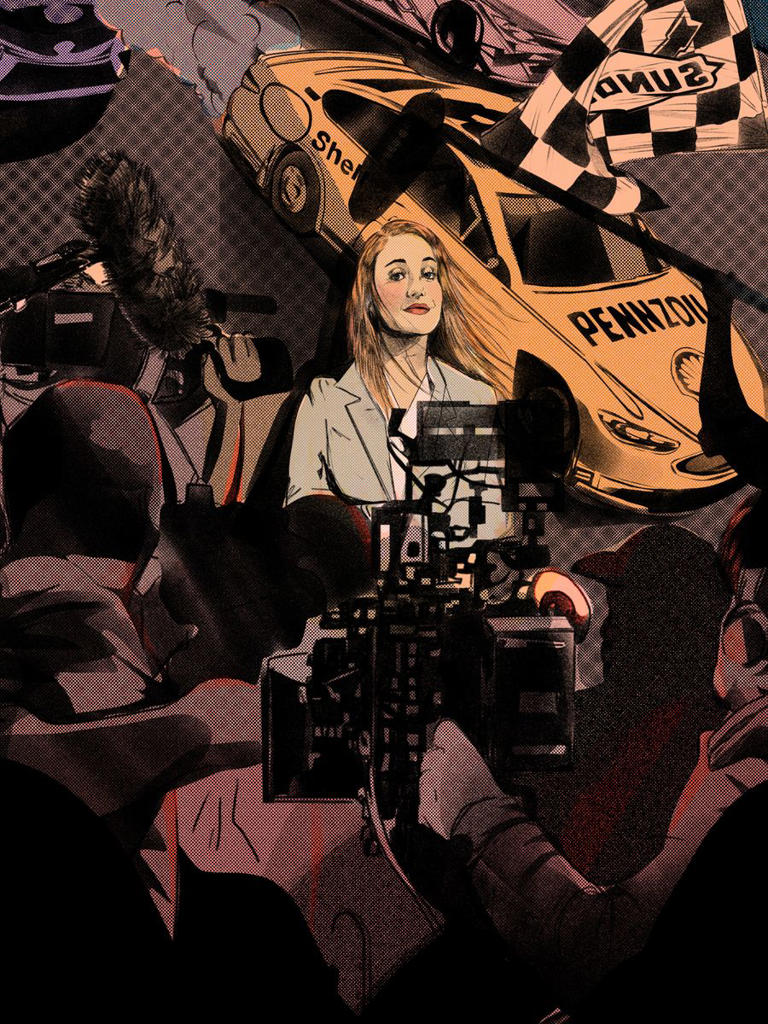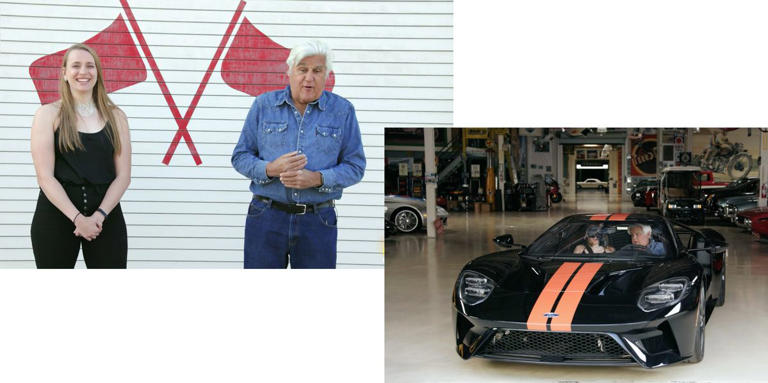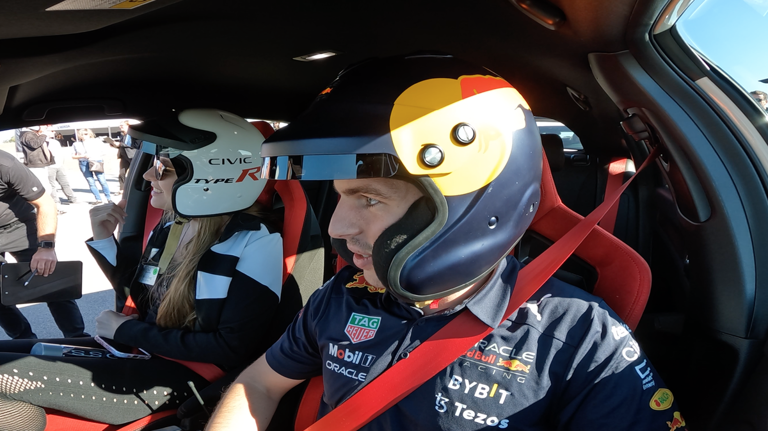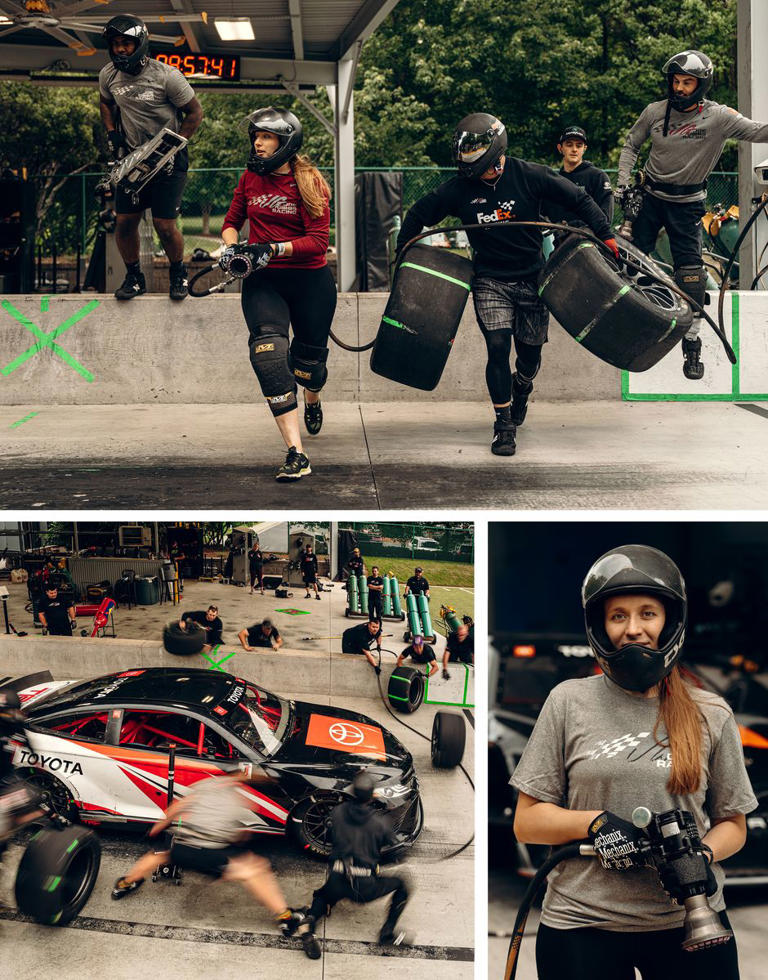Story by Alanis King

Alanis King© Illustration by Nicole Rifkin
In 2009, my mom came home from work one day with a stack of free NASCAR tickets. She’d overheard some co-workers quietly bartering for them in the corner of a meeting, and she knew they were our only shot at a family vacation during the Great Recession.
This story originally appeared in Volume 13 of Road & Track.
I shrugged off the idea, preferring to stay home. Back then, I was a 13-year-old kid who didn’t know a thing about cars. I couldn’t have told you who Dale Earnhardt Sr. was or what the V in V-8 means. Cars were merely a way to get from one place to another, and racing them seemed like a waste of time and resources. I’d clicked past NASCAR on television a few times, uninterested in watching a camera pan between advertisement-plastered cars for four hours, and I figured the same would be true in person.
Mom convinced me to go anyway. It changed my life.
When I saw Texas Motor Speedway for the first time, its towering white, red, and blue walls engulfed the horizon. Climbing into the grandstands and seeing 1.5 miles of thick asphalt was like discovering a new civilization, and the earth shook when 40 cars screeched past me in a double-file line to start the race. I didn’t know exactly what I was watching, but I knew whatever it was, I wanted to pursue it for the rest of my life.

Alanis King and Jay Leno© Jay Leno’s Garage/NBC Universal
These days I tell that story often. When people hear I’m a NASCAR reporter, they wonder why I would get involved in something they find so boring. They also ask me what it’s like to be a NASCAR fan. As a progressive young woman, am I out of place in a sport known to attract the opposite demographic?
It’s a hard question to answer. Like I did, most people base their opinions about NASCAR on stereotypes, like left turns and a lack of diversity. But stereotypes can sometimes illuminate kernels of truth. A few months after Danica Patrick became the first woman to win the pole for the Daytona 500 in 2013, former NASCAR driver Kyle Petty said she was “still not a race-car driver, and I don’t think she’s ever going to be a race-car driver.” In 2017, team owners Richard Petty and Richard Childress said they’d fire anyone who knelt during the national anthem in protest of police brutality. In 2019, NASCAR announced a partnership with Barstool Sports, whose founder once told a 20-year-old employee she’d be too ugly to be on camera in five years. In 2020, Kyle Larson, one of the sport’s stars, said the N-word on a livestream. (Larson was fired from his team, expressed remorse, then returned to the Cup Series with a different team in 2021 and won the championship.)

Alanis King and Max Verstappen© Honda
NASCAR has never been a sport to push back too hard, for fear of angering its longtime fan base, so I always figured I wouldn’t see things evolve much. But recently, I’ve started to change my mind.
In the past couple of years, I’ve seen the Cup Series have its first Mexican-born race winner, Daniel Suárez. I’ve seen Bubba Wallace become the first Black winner in the Cup Series since 1963, when Wendell Scott was originally denied his victory despite lapping the field twice. I’ve seen more modern race teams—like Trackhouse Racing, co-owned by Pitbull, and 23XI Racing, co-owned by Michael Jordan—join the grid. I’ve seen NASCAR ban spectators from bringing Confederate flags to its events, celebrate Pride Month, and explore more urban venues, like the Los Angeles Memorial Coliseum and a Chicago street course. It finally feels like NASCAR is seeking out new crowds rather than hoping to stumble upon them.

Joe Gibbs Racing Pit Crew Training© William Crooks
I have loved NASCAR since my mom dragged me to a race that day in 2009. It was the last passion I ever expected to develop, and it’s also the thing I’m most passionate about. I hope one day any little kid can walk into a race and fall in love with NASCAR without feeling out of place among its fans.
I know it’s possible—and every day I have more faith that we’ll get there.
No comments:
Post a Comment